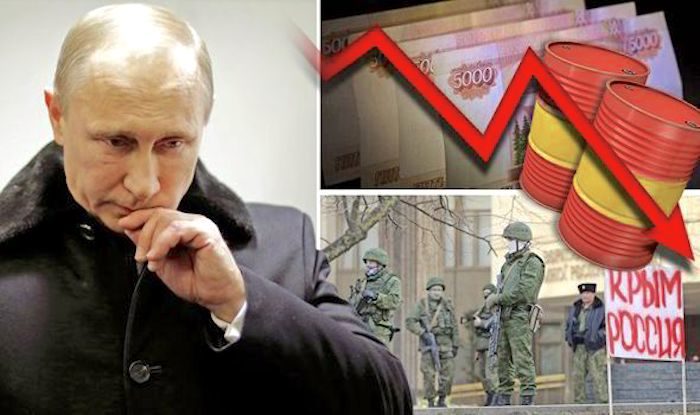Hendes kommentarer om den evne med hvilken den russiske regering har klaret de dobbelte problemer med oliepriskrakket i 2014 og sanktionerne kunne knapt være mere fyldestgørende:
Vi ser at den russiske økonomi vokser efter de få år med svære tider...
Da prisen på olie meget pludseligt gik fra næsten til tider, tror jeg mere end $100 per tønde, til et lavpunkt af $27/$28 per tønde, så var svaret fra den russiske økonomi meget omfattende. De tog de rigtige financielle forbehold. De holdte inflationen under kontrol. De adopterede en meget sund pengepolitik, som omfattede at lade valutaen flyde for at være sikker på at finanssektoren var stabil.
Kommentar: Denne artikel er blot delvis oversat til dansk af sott.net fra: IMF Chief Lagarde praises Russia's econ management
Indeed Russia's handling of the economic storms which assailed it in 2014 could serve as a text-book case study of how a modern economy should handle such storms. Not only have the Russian government's actions (as Lagarde says) been comprehensively vindicated by events, but they have confounded Western predictions of what would happen to Russia's economy, nearly all of which predicted disaster.
There is still a widespread reluctance in the West to acknowledge this. Western commentators continue to talk of the Russian economy as if it was still in crisis or recession, when it is actually growing, and continue to point to the low rate of growth the economy is achieving at this early point in its recovery, when interest rates are still high, and when the emphasis is still less on growth than on inflation reduction.
All I would say about that is that it would have been scarcely conceivable to most economic commentators in 2013, when oil traded at $110 a barrel and Russia's inflation rate was 6.48%, that Russia's economy would be growing again, and running a budget deficit of no more than 1.5% of GDP with an annualised inflation rate of 4.2%, less than three years after the West imposed economic sanctions cutting Russia off from the West's financing, and after the price of oil more than halved in value, plunging to a low of $27 a barrel in the first weeks of 2016, with the oil price today still no more than $55 a barrel. This after only a brief recession, in which the deepest contraction in 2015 was no more than 2.9% of GDP.
This is not to say that Russia's response to the crisis has been flawless. The fact that inflation this year now looks certain to fall below the Central Bank's 4% target appears to confirm my longstanding view that monetary policy during the recession has been far too tight. However the overall direction of policy - floating the rouble, restraining monetary policy and holding down the budget deficit - has been well-judged and must be counted a success.
The task for the government now is to move forward to consolidate the results which have been achieved, paving the way for higher non-inflationary growth in the future.




Læserkommentarer
dig vores Nyhedsbrev